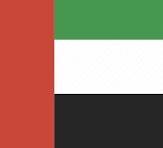
Rhinestone: A step towards sustainable fashion
Fast fashion is a growing problem and individuals usually purchase items from companies like Shein, HnM and Zara because of two reasons: o It is…
Read More
Save The Poor And Needy Organization Tree Planting Campaign
While recognizing that continuous cutting down of trees in rural communities for timber exploration can cause a safe environment for people to live in. SUSTAINABILITY…
Read More
SargassumEnvironmental Diagnosis of the Mexican Caribbean Associated with the presence of Massive Sargassum Arrival: water, sediment, and air phases.
Since 2011, the Caribbean coastal regions have experienced waves of Sargassum algae ( Sargassumfluitans and S. natans) that accumulate on their shores. The arrival in…
Read More
Shaan Baig, One basic human need at a time, Concordia University, Canada
Shaan Baig is the CEO and Founder of SB Innovations, a research and development company focused on creating novel solutions for the world’s most pressing…
Read More
Save Our World
The “Save Our World” is an innovation of an autonomous vehicle called “Mishra Sweep Tech,” which is designed to be driven by AI (Artificial Intelligence)…
Read More
Aquifier Storage and Recover”
The project aims to spread information about ASR (Aquifier Storage and Recovery) and how it helps people save water during trying times such as water…
Read More
Plastic Pollution and Biodiversity” by Meenakshi Rakhesh and Preyasi Desai, UAE and India
The project aimed at using creative mediums to spread consciousness about the issue of plastic pollution. Delving into an array of solutions, the project focuses…
Read More
The Odomos for Plastic
“The Odomos for Plastic” by Ved Sanyal, Ervis Foundation, India The proposed innovation aims to modify plastic such that animals know that it is harmful.…
Read More
Siddhi Sanghavi, Awareness campaign – “Do you know your plastic?”, Blue Circle
The presentation aimed at creating awareness about eco-friendly plastic and its benefits. The primary objective is to increase use of High-Density Polyethylene (HDPE) since it…
Read More



